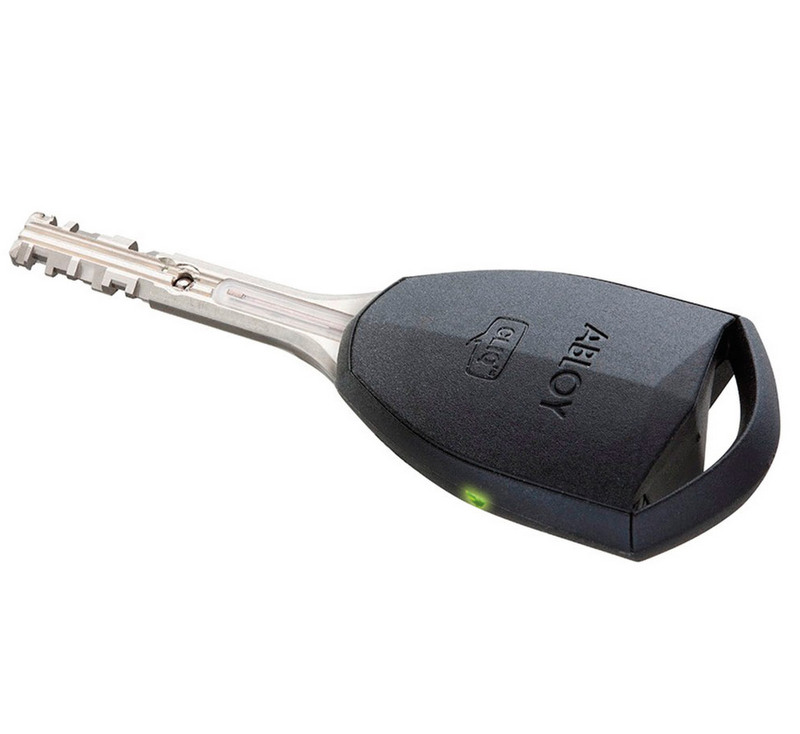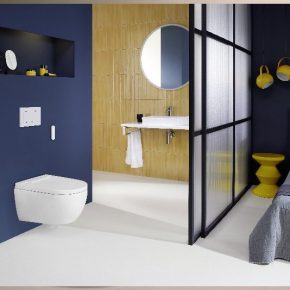
Security requirements of the financial sector
FINANCIAL SECURITY
How recent developments in technology can create a fully integrated solution for maximum protection as well as reducing energy requirements.
Integrated access control with Abloy UK
Security within the financial sector has evolved over the last few decades. With threats from thieves and terrorists seemingly ever increasing, banks and other financial institutions have found themselves prime targets, and therefore the need for tighter security measures has increased.
Accessibility is essential for customers, however the building needs to be protected so it does not become vulnerable to threats. In particular, trading floors are susceptible to disruption from action groups and protestors, which can hinder the level of security.
It can be tricky to gain the level of security required in banks and other financial premises using a mechanical key system alone. So how can IT departments and Security Managers ensure total security?
Satisfying needs
In order to satisfy the needs of the building including swift and easy access and egress, security against attacks, and securing data centres an electronic access control system can offer a far greater security provision.
When it comes to means of escape, ensuring the correct locking solutions are installed at access points is vital too. There are safety advantages to be gained from opting for an electric locking system such as a motorised or solenoid lock rather than choosing door magnets.
There can be fire risks associated with installing a magnet on a door which is used as a fire escape, because they require special arrangements to be made to guarantee they are fail-safe at all times in the event of an emergency. It may be that an alarm or request to exit mechanism is required for electromagnetic locks to allow someone to exit.
Motorised and solenoid solutions satisfy the needs of both fire doors and emergency and panic situations where a mechanical means of escape is required. Motorised locks are also ideal for emergency exit access control as they do not feature a handle which is the most vulnerable part of a door – making them a hands free solution.
This can improve the flow of people through the door, which is especially useful in financial buildings when a swift and smooth exit is needed for a large number of people. Because of this, motorised locks are often considered a more secure alternative to a solenoid version.
Energy efficiency and sustainability
Although door magnets may have a smaller initial cost, in the long run electric locks are substantially more energy efficient. This is because door magnets need a constant supply of electricity to power the magnetic field that ensures the door stays closed.
When a person needs to use the door to enter or exit a building, they press the exit button or swipe an access card that cuts the magnetic hold and allows the door to open.
Alternatively, electric locks only require electricity to open or close the door, rather than a constant supply. Its highly likely that doors will be closed for a far greater amount of time than they will be open, meaning in this instance the electric locks will use considerably less energy than their magnetic counterparts.
To put this into context, 13 door magnets use around the same amount of electricity as a kettle being constantly boiled all day. In comparison, electric locks will only require around 10-20 per cent of this amount of energy to operate for the same amount of time.
Audit trails
It is also important for there to be a record of who accessed what areas and when in a financial institution, in order to create audit trails and be able to log any physical movements within the building against a certain person.
For example, there may be a safe containing large amounts of money or a data centre containing sensitive information that only select individuals have access to.
In order to keep track of who enters that location, a web-based access control system allows users to see exactly which employee gained access and when, using information from their key fob or access card.
In the event of a theft or suspicious activity, the audit trail can be reviewed and can give evidence as to whose key was used to gain access to a particular location at the time of the incident.
Banks are also often global companies, so access may need to be operated and managed on a global scale, via a cloud-hosted solution. This means that users can have visibility of their system from anywhere and can send updates to keys anywhere.
Creating compliance
Financial premises must comply with the latest British and European Safety and Security Standards and Building Regulations. In order to become compliant and meet security requirements, finance companies should consider investing in electric locking and electro-mechanical cylinders, which are both cost-effective and non-disruptive to install.
Electric locks are a compliant solution that meet standards EN179 Emergency Escape for when the building occupants are aware of the building environment, and EN1125 Panic Escape for environments used by the general public.
Installation of an electronic cylinder system can be completed quickly and easily, and the occupants of the financial building can use an encrypted key that has credentials to operate certain doors in the building, depending on their access rights and requirements.
One benefit of a system such as this is that if a key is mislaid, it can be disabled, and a new one issued the same day, whereas an old master-key system would require an entire floor to be re-keyed, at great expense.
Integrated access control
One of the most apparent changes in security provisions has been the shift from a traditional master-key system to a more integrated access control system. In order to create a double layer of security, some institutions have added a mechanical solution to an access control system.
With this in mind, Abloy has developed the CLIQ Remote web-based security management solution, which allows for the remote management of disparate or large electronic master-keyed sites at any time, from anywhere in the world.
Abloy CLIQ Remote also provides comprehensive audit trails on cylinders and padlocks and the ability to remove lost or stolen keys from the system, thereby providing tight key management at all times.
Installation is really easy with no wires or networking required, and the solution can be retrofitted into virtually any door with the ability to work across large geographic areas.
CLIQ keys meet the highest European Standards, including EN1303 for cylinders and EN12320 for padlocks and electronic security using high level AES encryption, meeting the highest grade of the new EN 15684 Mechatronic standard.
In addition to CLIQ, Abloy recommends that financial institutions consider installing the Abloy EL560 solenoid lock, which works by controlling either the latch or the handle. Alternatively, the Abloy EL520 motorised lock works by motorising the bolt back once a proximity card is presented or a request to exit device is used.
The complete, secure door
For a complete door solution, theres the Abloy Door, which features a lock, lever, cylinder, and panic option, and is LPS 1175 SR2 certified by the Loss Prevention Council Board (LPCB).The Abloy Door boasts an EL160 Mechanical Lock Case with automatic deadlocking, Lever Handle Set, Protec2 Euro Profile Cylinder, and Panic Bar.
So to cope with the ever-evolving security requirements of the financial industry, an integrated access control system such as CLIQ combined with electric locking offers greater security, flexibility, and peace of mind.
Abloy UK Dealer Network
If you would like further information about products and services available from Abloy UK, please call 01902 364 500 or email [email protected] or visit the Abloy London Showroom at The Building Centre in London.
Find your nearest Abloy dealer in the UK and Ireland
More information about Abloy UK via the weblink below
Contact:
Abloy UK,
Portobello Works,
School Street,
Willenhall,
West Midlands,
WV13 3PW
Phone: 01902 364500
Fax: 01902 364501
Visit Supplier's page
Latest news

23rd April 2024
Geberit brings Parallel World to Clerkenwell Design Week
Visitors to this year’s Clerkenwell Design Week (21 – 23 May) can step into a parallel world and discover the benefits of cleaning with water, thanks to Geberit.
Posted in Articles, Bathrooms & Toilets, Bathrooms, Bedrooms & Washrooms, Building Industry Events, Building Industry News, Building Products & Structures, Building Services, Exhibitions and Conferences, Innovations & New Products, Interior Design & Construction, Interiors, Plumbing, Restoration & Refurbishment, Retrofit & Renovation
23rd April 2024
Mitsubishi Electric Ecodan Heat Pumps and Water Cylinders to be stocked by The Boiler Shop
Mitsubishi Electric’s full range of Ecodan heat pumps and hot water cylinders are to be stocked by one of the north-west’s best established independent merchants, The Boiler Shop.
Posted in Articles, Building Industry News, Building Products & Structures, Building Services, Facility Management & Building Services, Heating Systems, Controls and Management, Heating, Ventilation and Air Conditioning - HVAC, Plumbing, Posts, Retrofit & Renovation, Sustainability & Energy Efficiency
23rd April 2024
Trio of Senior products used in new Nottingham residential scheme
Solutions from Senior Architectural Systems have helped complete The Barnum – a new residential development on Nottingham’s Queen’s Road.
Posted in Aluminium Products, Articles, Building Industry News, Building Products & Structures, Building Systems, Case Studies, Curtain Walling, Doors, Glass, Glazing, Posts, Restoration & Refurbishment, Retrofit & Renovation, Walls, Windows
22nd April 2024
New EJOT role will develop strategic support for UK flat roofing sector
EJOT UK has taken a major step in the expansion of its support for the flat roofing market by appointing one of its most experienced building envelope fastening specialists as its first sector-dedicated business development manager.
Posted in Articles, Building Industry News, Building Products & Structures, Building Systems, Innovations & New Products, Posts, Recruitment, Restoration & Refurbishment, Retrofit & Renovation, Roofs
 Sign up:
Sign up: